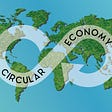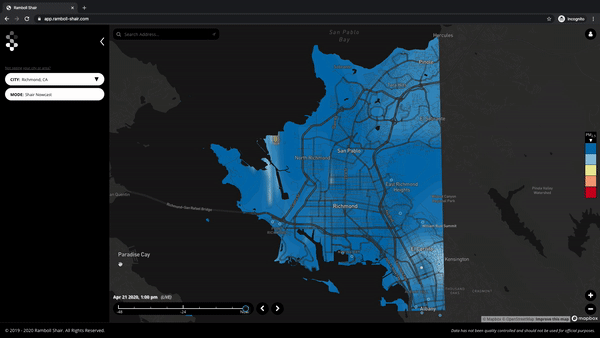Not Gonna Make It?
Climate change has been a major conversation across the world today — and rightly so. Climate change and the results by 2050 would determine how life on earth would be for our generation and those to come. I have experienced the rising heat levels in my major place of residence — Lagos, Nigeria. I spent the winter of 2021/2022 in Berlin and I didn’t experience a White Christmas — there had been no White Christmas for years (basically, snow fell on only a few days, probably less than seven, throughout the winter season). These are the effects of climate change. According to a study by Stanford University, climate change increases the risk of conflict. The exact relationship is not clear yet, but there is some correlation, with the study stating that climate change has influenced 3%- 20% of the risk of conflict. Currently, Northern Nigeria is plagued by armed conflicts, and one reason for those conflicts is climate change which has increased the scarcity of land resources for farmers and herders, according to a past Nigerian Head of State. Heavy rainfalls and soil erosion have led to the deaths of numerous people in Rwanda.
Climate change is driven mostly by the presence of greenhouse gases in the earth’s atmosphere, with carbon dioxide (CO2) being the leading contributor. Based on carbon emissions data from the World Bank, we currently emit four (4) times more CO2 today than we did in 1960. Some causes of carbon emissions include:
- Burning coal, oil and gas.
- Cutting down trees (and then, some trees are burnt as charcoal or firewood)
- Agriculture: Livestock farming and crop farming (rice paddies are a major carbon culprit).
- Industrial activities: such as the production of steel and cement.
Source: United States EPA Greenhouse Gas Emissions Data
Net-Zero
The world is rallying to attain net-zero carbon emissions by 2050, about 28 years from now. The global effort is focused on ensuring our emissions do not cause warmings that exceed 1.5 ° Celsius above pre-industrial global temperatures. This would be the most audacious, yet most important goal humans have set for themselves. We need to reach Net-zero by the middle of the century, then go net-negative.
Net-zero doesn’t mean zero emissions, rather it means that the sum of carbon emitted and carbon removed is zero. When the causes of carbon emissions are examined, it is obvious that our civilization depends on emitting carbon. The global population keeps increasing, especially in Africa - where most of the people eat [pronunced as ‘love’] meat. The scale of animal rearing will keep increasing, and these animals produce methane (21 times more dangerous than CO2) which adds to the greenhouse effect. Now, we can’t expect people to stop eating meat or rice, and nor can we expect people to stop building structures, which require steel and cement. Hence, we need to cancel out the carbon emissions from human activities by 2050.
That said, Net-zero is a major milestone in our climate journey, not the destination.
I summarize what we need to do to get to that destination in two points:
- Lifestyle Change: moving from products and lifestyles that heavily emit carbon to those that don’t.
- We have to remove carbon already emitted.
Lifestyle Change
It seems clean energy hasn’t been top of the mind of investors, with only 2% of the roughly 1,000 unicorns that emerged between 2000 and 2021 being energy-related startups. We can compare this to Fintechs which makes up 13% of the unicorns listed. This does not paint the full picture of clean energy startups operating in the industry, but it’s good enough to make an inference. We need to focus on investing in these startups and technologies if we are going to accomplish the lifestyle changes we envisage.
Source: Hurun Global Unicorn List, Ore Owolabi.
Personal Net-Zero Steps
Let’s examine how an individual (or organization) can achieve a net-zero lifestyle. I can switch from an internal combustion engine (ICE) to an electric vehicle. A company’s fleet of vehicles can move from diesel to CNG or better still, become electric vehicles (EVs). City electricity grids can move from using coal to using renewable energy such as wind, or solar energy. These are all beneficial to the community but they need to be examined further to understand how much reduction in carbon emissions they cause, how accessible, reliable and affordable are they and whether they are the best for global adoption.
Let’s examine switching from ICEs to EVs. Switching to EVs means you do not emit carbon when you drive, but you and other EV users in that city have increased electricity demand and your city has to provide for that increased energy demand. If your city is using coal (yes, some cities still use coal. It’s sort of cheap), then you have increased the amount of coal (or gas) used, thus increasing carbon emissions. According to a report by DW, producing 1kwh from solar panels generates 50 grams of CO2 (which is low compared to the 500 grams from natural gas, and 1000 grams from coal). I’m just saying, depending on how your city generates electricity, your EV reduces your carbon emissions, but does not get them to zero. So, to be clear, simply switching to EV doesn’t stop your emissions, it only shifts the responsibility to another entity.
Source: The surprising truth behind the world's electric cars | World Economic Forum (weforum.org)
You then discover a way out. You can go off the city’s electricity grid and rely solely on solar photovoltaic (PV) technology to harness solar energy. Now, your home and vehicles are fully powered by renewable energy. You may say you have zero emissions but you don’t, not yet. Have you considered carbon emitted along the supply chain tasked with providing you with your PV panels, batteries and other equipment?
You have greatly reduced your carbon emissions with regards to energy, but you haven’t reduced it to zero. Furthermore, housing, feeding and other aspects of human living cause carbon to be emitted. You would probably need to go back to Victorian-era living if you want to reduce your carbon emissions to an infinitesimal level compared to what it is today.
We have seen how carbon-emitting processes are really hard to shake off, now let’s look at the financial costs of switching. I currently work in the clean cooking space, and a major reason households cook with dirty fuels - 80% of Sub-Sahara African households use charcoal, firewood and other dirty fuels. These emissions are huge. Many governments provide subsidies but subsidies are not sustainable. Providing clean cooking fuels distribution infrastructure also helps to increase adoption. There are 2.6 billion people around the world using dirty fuels, they know these fuels are harmful, but they can only afford the cheaper and more available option. The same goes for other forms of clean energy.
The adoption of renewable energy to power city grids increases how much users pay for electricity. Developing countries need energy delivered at the cheapest rate possible, or else the people would not pay. What’s important to consider as well is that due to the intermittency of these renewable forms of energy - solar and wind - they need a backup power supply, usually coal or gas. Hence, it would make sense for a developing country to rely solely on gas, rather than invest heavily in renewables that increase the cost and aren’t as reliable as a gas-powered generation. It would seem richer communities are those that can afford to switch to renewables while developing regions would need to depend on fossil fuels or HEP, grow their purchasing power and then switch to renewables - hence the idea of gas as a transition fuel.
It’s going to take more than just campaigning for and investing in solutions that cause lifestyle changes to get us to NetZero. We need to do these and more. We have built our society on certain lifestyles, and our industries are too interwoven to simply just cut off some parts. Honestly, looking at these, it seems we are not gonna make it (NGMI) to Net-Zero.
Removing Carbon
Let’s imagine the lifestyle change campaign worked and people stopped emitting carbon today. We still would have lots of carbon in the atmosphere, already doing damage to the world. What we need is to remove that carbon already there, if we are going to prevent the imminent disasters forecasted.
The idea here is simple: we need to ensure that we are preventing carbon from getting to or staying in the atmosphere. This could be through capturing it at points of emission or capturing it from the air, then storing it underground. There are numerous technologies in play to do capture carbon and sequester (CCS) it. The technologies are still quite expensive but carbon trading helps offset the costs, as CCS helps offset the carbon. With more investments, as well as research & development, the cost of these technologies would fall, just like that of solar panels.
We should also endeavor to look at other natural systems that remove carbon, such as forests. Deforestation is alarming. We have lost over 80 million hectares of forest cover between 1990 and now. We need to plant more trees; I’m saying this because this is supposedly the easiest thing we can do. The amount of forest cover lost in the Amazon was as large as the nation of Israel. Trees sequester carbon, and tropical tree cover can provide up to 23% of our climate mitigation needs for the next decade. I believe this is one easy step individuals and organizations can take [add to the other steps they’re taking] to move the world towards NetZero.
Let’s protect our trees. Let us plant more trees.
Are we going to make it?
Judging by human nature, it seems unlikely, but a lot can happen in 28 years. While not everyone can switch to an EV and not every city can switch to a solar-powered grid, we all can take little steps - like protecting existing trees and planting new ones aggressively - to remove carbon from our atmosphere. An adage says, “how you lay your bed is how you’ll lie on it”. If we take care of the earth well, we shall enjoy it. If we don’t, we shall suffer for it. It is clear that now is the time to intensify our efforts.







